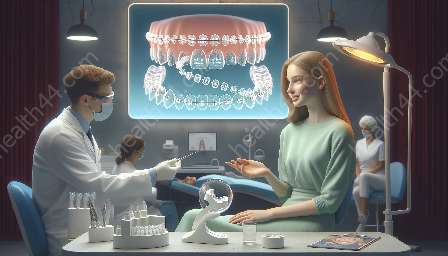Our oral health is intricately linked to our overall well-being, with dental occlusion playing a crucial role in maintaining optimal health. In this comprehensive guide, we will delve into the significance of dental occlusion, its impact on overall health, and how Invisalign can assist in achieving proper dental occlusion.
Dental Occlusion Explained
First, let’s define dental occlusion. Dental occlusion refers to the way our teeth fit together when we close our jaws. Proper dental occlusion ensures that the teeth, muscles, and jaw joints work harmoniously, allowing for comfortable biting, chewing, and speaking. In essence, it determines the alignment and contact of the upper and lower teeth when the jaws are closed.
When dental occlusion is ideal, the forces of chewing and biting are evenly distributed among the teeth, minimizing wear and tear. However, any misalignment or irregular contact between the teeth can lead to a range of oral health issues, such as uneven tooth wear, jaw pain, and even headaches.
The Interconnectedness of Dental Occlusion and Holistic Health
While most people recognize the importance of proper dental occlusion for oral health, its impact on holistic well-being is often overlooked. Research has increasingly highlighted the interconnectedness between dental occlusion and various aspects of our overall health.
For example, studies have suggested that improper dental occlusion may contribute to issues such as temporomandibular joint (TMJ) disorders, neck pain, and even posture problems. Furthermore, poor dental occlusion can affect the airway, potentially leading to breathing difficulties during sleep and contributing to conditions such as sleep apnea.
Beyond these physical implications, the psychological impact of dental occlusion cannot be ignored. Misaligned teeth or an improper bite can affect an individual's self-esteem and confidence, potentially leading to social and emotional challenges.
The Role of Invisalign in Achieving Proper Dental Occlusion
As technology continues to advance, modern orthodontic solutions like Invisalign have revolutionized the way we approach dental occlusion. Invisalign aligners are designed to gradually shift the teeth into their ideal positions, addressing misalignments and bite irregularities to promote proper dental occlusion.
Unlike traditional braces, Invisalign offers a discreet and comfortable solution for achieving optimal dental occlusion. The clear, custom-made aligners are virtually invisible, allowing individuals to straighten their teeth with minimal impact on their daily lives. This aligner technology also enables easier maintenance of good oral hygiene compared to traditional braces, as the aligners can be removed for eating and cleaning.
Furthermore, Invisalign aligners can contribute to overall oral health by aligning the teeth in a way that promotes better chewing function and jaw alignment. By addressing dental occlusion, Invisalign not only enhances the aesthetics of the smile but also supports holistic health and well-being.
Promoting Overall Health Through Proper Dental Occlusion
Ultimately, achieving proper dental occlusion goes beyond aesthetics—it is a fundamental component of promoting overall health and well-being. By recognizing the intricate relationship between dental occlusion and holistic health, individuals can prioritize the alignment and function of their teeth to support their physical, emotional, and psychological wellness.
Whether it involves seeking orthodontic treatment, such as Invisalign, or practicing mindful chewing habits, taking proactive steps to address dental occlusion can have far-reaching benefits for one's quality of life.
Remember, maintaining regular dental check-ups and consulting with orthodontic professionals can provide personalized guidance on optimizing dental occlusion for enhanced health and well-being.


